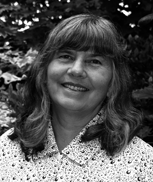While you ponder these things, and wonder what difference such a shift in attitude might make to our relationship with Africa and her agonizing problems and deep-rooted wisdom, consider one more thing. If a raindrop falls upon this little koppie in the teeming city of Johannesburg, with all its vitality and its violence, that raindrop will join the flow of water either into the Orange River, and thence to the South Atlantic, or into the Limpopo River, and thence into the Indian Ocean. Because this hillock is the boundary between two watersheds and marks the great divide between the flow of South Africa’s waters, either east or west, depending on.... Depending on what? The random chance of how the raindrop “chooses” to flow, and in which direction its energy becomes invested.
North American readers, of course, will be familiar with much more spectacular great divides that separate the watersheds flowing west to the Pacific, east to the North Atlantic, or north to the Arctic oceans. I had the pleasure of standing astride one of these divides on the Alberta-British Columbia border in western Canada, and was duly impressed by the signs and celebrations of this significant bit of geography. Johannesburg is much more reticent about its great divide. I only got to hear the raindrop story from a friend who took me to the hilltop for a better view of the city.
Somehow it was not difficult to identify with that little raindrop, carrying such a responsibility in its choice about which way to go. Of course, if you are a raindrop, it probably does not much matter which way you go, since all rivers eventually flow into an ocean, and all oceans are good news. It would not make much difference, ultimately, to the destination, though it would make a huge difference to the journey and the landscape and human situations through which you would pass.
But what about our own choices? Some of them switch the points on our life’s journey and change its course for-ever. Some barely cause a ripple. But all of them make a difference. In so many ways we shed our little raindrops of choice over and over again with every passing day. Some drops are quiet and small, like the one that fell on the koppie in Johannesburg. We choose how to react to a call for help, or to some unwanted criticism. We choose a word of encouragement or disparagement, a kind or angry gesture. And some of them are big and compelling, like the North American divides. We choose where to invest our life’s energy. We choose whether or not to resist or collude with injustice, and sometimes the choice is costly. Each drop, each choice, has power at a personal level, but it will also flow into bigger and bigger rivers—the rivers of our community choices, our national choices and our global choices. Without the personal choices for peace and justice, there will be no peace or justice in our nations and our world. A choice that betrays a personal trust will also pollute the rivers of all human interaction.
Whether they appear to be important or slight, our choices are all raindrops that fall steadily upon the great divide of life, which separates what is life-giving from what is life-denying. In everything we do or say, or even think, we are weighing in, however slightly, either with the creative or with the destructive movements that are shaping the future of humanity. Unlike the raindrop falling on the Origins Centre, these choices are not random. They are in our control and they are our responsibility; and it does matter which way they flow, because they are making us who we shall become. Every individual choice for the more loving, more Christ-like way, the more truly human course to take, makes us all more human and more Christ-like. Every self-focused choice, for retaliation over reconciliation, for the benefit of me or my group over the needs of all creation, makes us all less human, and impedes the fulfilling of God’s dream for humanity.
I have a hunch that the most destructive elements in our world today are not the weapons of mass destruction, real or imagined, but the millions of petty diminishments and spiteful hurts that we inflict on each other every day. And the most creative elements of human life are not the space probes or the heart transplants, but rather the countless quiet words of kindness, the small acts of courage or generosity, the friendly smiles that warm another’s heart. These raindrops are well within the range of every human person. John of the Cross says that at the end of the day what matters is love. Every choice that adds to the store of love, hope and trust in the world is a choice for the ocean of God’s love.
In every choice we make, we stand astride this Great Divide. It matters, which way each raindrop chooses to flow. Together we are shaping humanity’s future on earth. Every raindrop either nourishes or harms that future. Every choice decides.








